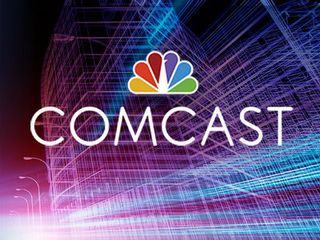Comcast Wants to Test CBRS in Philly

Comcast is seeking permission from the FCC to conduct tests in Philadelphia using the Citizens Broadband Radio Service (CBRS) band, a batch of shared spectrum that's poised to play into cable’s longer-term mobile and wireless strategies.
RELATED: CBRS Spectrum to Open Windows of Opportunity for Cable Ops
In a request to the FCC,spotted by FierceWireless, Comcast is asking the Commission to provide an experimental license to conduct tests in that emerging shared-spectrum band for one year, starting on March 1. More specifically, Comcast is eyeing trials using the 3650-3700 MHz band
The CBRS band, a 150 MHz-wide batch of spectrum in the range of 3.55 GHz to 3.7 GHz, has been underutilized, with most of it used today by the U.S. Navy for flight operations for aircraft carriers, along with some satellite uplinks.
In addition to supporting incumbent users, the spectrum will also be allocated for licensed (Priority Access Licenses) and unlicensed use (general authorized access). Comcast is seeking permission as the FCC works up rules that govern CBRS.
Cable operators are interested in CBRS in part to complement their mobile virtual network operator (MVNO) agreements so they can offset some of the network costs associated with new mobile services. Comcast is already well down the MVNO path with Xfinity Mobile using its agreement with Verizon. Charter Communications, which is also running tests in the CBRS band, is working on a mobile service that will also lean on an MVNO deal with Verizon.
Comcast said it aims to conduct pre-commercial field trials in the CBRS band to evaluate elements such as coverage, throughput, and mobility of equipment and facilities that are operating in that band.
For the test, Comcast is eyeing outdoor and indoor fixed and mobile trials in a “small targeted portion of the Philadelphia” that’s in Comcast’s service footprint within a radius of 7 kilometers.
Multichannel Newsletter
The smarter way to stay on top of the multichannel video marketplace. Sign up below.
Comcast also acknowledged that its work must be conducted without interfering with incumbent users of the band.
Google and Federated Wireless, which has already acknowledged that it’s working with Comcast and Charter (Charter’s also an investor in Federated Wireless) on CBRS-facing work, have developed cloud-based spectrum allocation controller platforms that ensure that new entrants don’t interfere with incumbent users in the shared band.
RELATED: Federated Wireless Targets ‘Third Model’ for Mobile (subscription required)
Though Philadelphia is located within the NTIA’s coastal exclusion zone for operations in the 3550-3650 MHz band, Comcast said its application for the test only seeks authority to test operations in the 3650-3700 MHz band. Comcast also said that it hasn’t identified any Fixed Satellite Service earth stations operating in the 3650-3700 MHz band where testing will occur.
Still, Comcast said it will also establish a point of contact that has the authority and ability to disable all transmission when notified if tests interfere with any primary-licensed services.
Charter recently told the FCC its tests in the CBRS band has delivered speeds of at least 25 Mbps downstream and 3 Mbps upstream.
RELATED: Charter Puts Wireless Broadband to the Test (subscription required)
